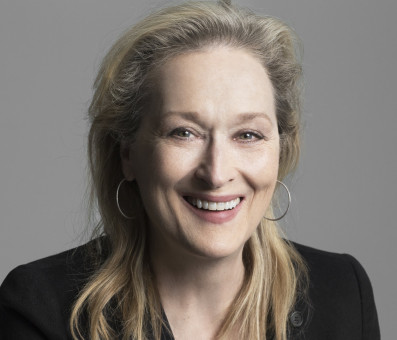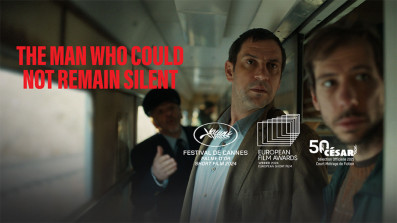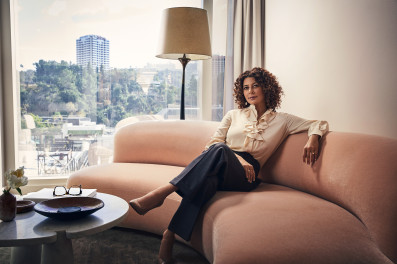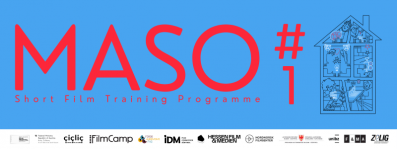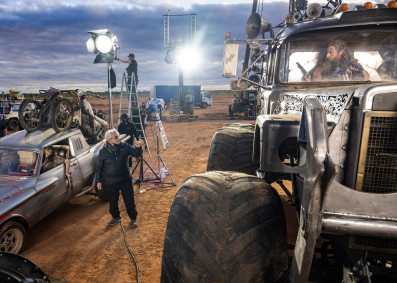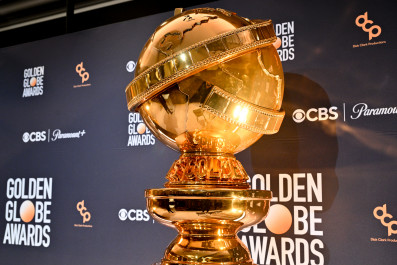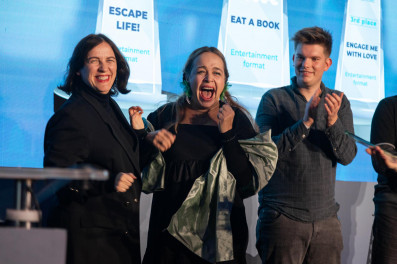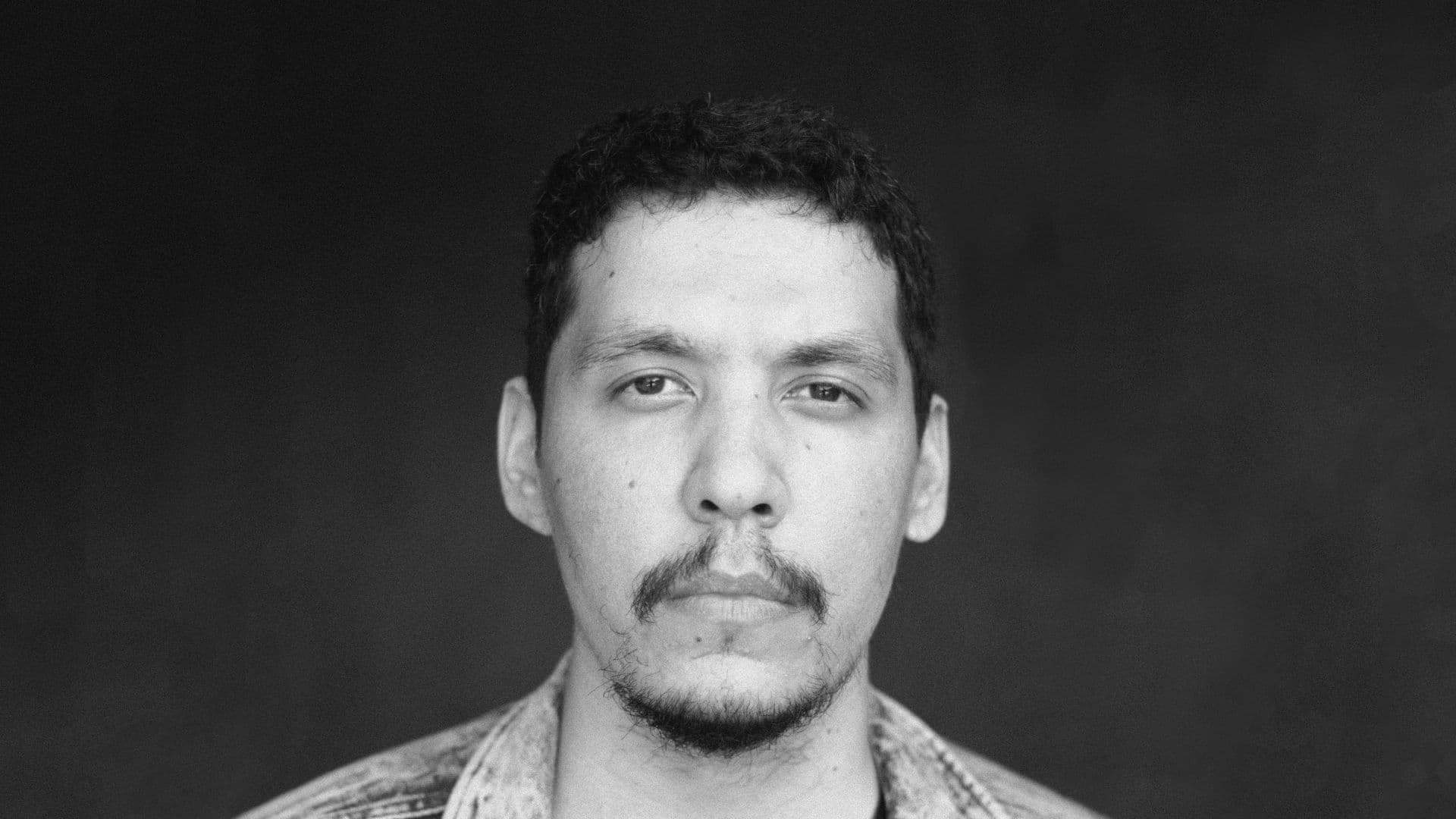
Hamza Bangash - someone who wears multiple identities, tell us stories that reflects that reality
Bringing you the Locarno interview of the award-winning Pakistani-Canadian director
Hamza Bangash is an award-winning Pakistani-Canadian director, screenwriter and producer. An alumnus of both Locarno and Asian Filmmakers Academy, his artistic practice is based out of Karachi. His works have been showcased in film festivals worldwide, including Locarno, Clermont-Ferrand and Palm Springs. Bangash is currently in early stage of development of his first feature film, MARIAM. The project won the MPA-AFA First prize award at the Busan International Film Festival 2019 and was selected for Berlinale Talent Project Market 2020. The feature film is intended for a 2022 theatrical release. This is the interview with Hamza Bangash director of 1978 which is screened at Locarno IFF.
Why did you want to become a film director? And how did you become it?
I started my journey in cinema about four years ago. I had studied theatre in my undergraduate degree. But the ephemeral nature of theatre, something that true stage artists admire, frustrated me to no end.
It was one of the driving forces that attracted me to cinema, a type of storytelling that exists long after the creator is gone. I guess you could I wanted to become a film director to leave my mark, but I think more than that, I realized that there are so many narratives that are not being told. Growing up between Pakistan and Canada, I recognized the value that stories have in shaping identity – and for someone like me- who wears multiple identities- I wanted to tell stories that reflected that reality.
After writing and directing stage plays in Karachi, my theatre troupe and I began making very very low-budget short films. Those short films attracted some attention, and since then I have been able to grow from one film to the next.
Much of my growth was also aided by local and international film training programs. As I never went to film school, these programs sort of became my film school. I started with Goethe and Prince Claus Fund’s Film Talents Program, and from there joined Locarno’s Open Doors Program, Busan’s Asian Film Academy, and then also had the opportunity to attend Locarno’s Film Academy.
These programs have really shaped both my approach and perspective towards cinema.
When you started to be interested in movies, what movies did you watch? And what movies could you watch in Pakistan at that time?
After graduating from my theatre degree in Canada, I moved back to Pakistan to pursue a career in the arts- and started consuming as much World and Pakistani cinema as I could. One of the first Pakistani films that I saw, that really resonated with me, was ‘Khamosh Paani’ (2003) directed and written by Sabiha Sumar. The film won the Golden Leopard at Locarno.
It is one of the few Pakistani films that became an international success story, and inspired me to continue on my path.
What is the starting point of "1978"? Your own experience, real rockstar in Pakistan, or some other thing?
The idea to do a period film came after I met with Rashid Maqsood Hamidi,1978’s Executive producer. He grew up in the 70’s in Pakistan, and was nostalgic of the era: of a Karachi that I couldn’t believe existed. A city that thrived on multiculturalism, tolerance and was considered to be the ‘Paris of the East.’ Rashid had teamed up with producer Abid Aziz Merchant to make a feature film off a treatment that Rashid had developed.
However, the film he had in mind was set in modern day Pakistan. It was after speaking with him, I realized it would be so much more exciting to revisit that period in Pakistan’s history- when for one brief, fleeting moment- Karachi truly was the city of lights. I convinced them to make a short film set in the 1970’s first- and then if that was successful- perhaps a feature later.
I started doing my research and speaking with prominent members from the disco era- the musicians, dancers and nightclub owners. I discovered that the Goan-Christian community was integral to the scene- and through my producer Carol Noronha (who is also part of the Goan-Christian community), I was introduced to Clifford Lucas. Cliffy invited me over to his home, where he had invited a bunch of the musicians from the 70’s for a jam session. Over music and a few drinks, we discussed the forgotten Karachi- and Cliffy introduced me to Uncle Norman. When Uncle Norman told me his experiences in the changing Pakistan of the 1970’s – I knew I had found my story.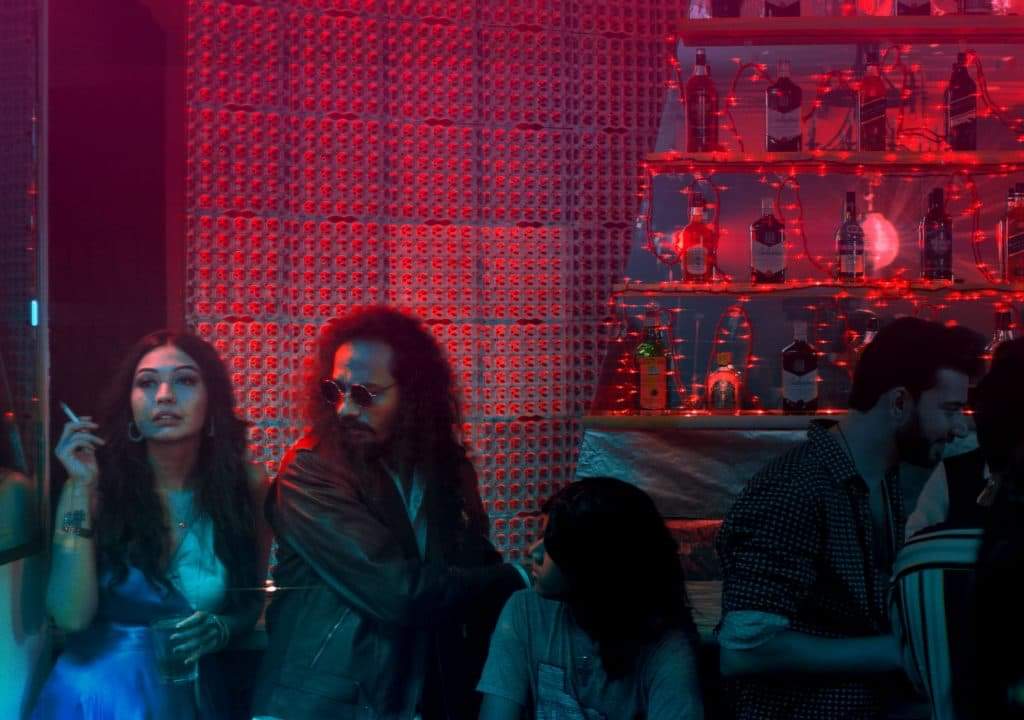
First, I'm amazed at its vivid first sequence that the protagonist pees in front of the poster. To me, it represents the protagonist's cool, dissident personality. So, I want to ask, how did you decide to choose this scene as the film's first sequence?
It’s funny that you mention that, because that wasn’t even the initial first sequence! We had a scene prior to that one, where we meet our protagonist at a run-down restaurant. He and his band are performing there, but are soon attacked by right-wing extremists. We ultimately cut that scene, as it felt a bit too loud for the tone I wanted to set in the beginning of the film.
I loved the sequence of the protagonist peeing, as not only does it speak to his character, but it also foreshadows his ultimate choice. Initially, it came after he left the restaurant, but the image was so powerful that I felt it made sense as our opening scene.
In cinema, so many of the wonderful things that happen are happy accidents.
One of the interesting things in the film is its depiction of religious conflict in Pakistan. The protagonist is Christian, but his career is threatened when Islamic fervor grips the nation. Please elaborate on this religious conflict in Pakistan to Japanese readers for understanding this film more deeply. Does this conflict continue even now?
The Goan-Christian community was deeply impacted by the political and cultural shift in the 70’s. As a result, many emigrated to the US and Canada, and this mass exodus extended to other minorities- noticeably the Parsi and Hindu community. Pakistan is a difficult country to live under the best of circumstances, but if you belong to a group that is not from the Sunni Muslim majority you have to face a system/society that has discrimination sown into its very fabric. That is why I am so inspired by the Goan-Christian community members who continue to live and work in Pakistan. They don’t flinch in front of the challenges they face. In my eyes, they are the true heroes.
Also beautiful in this film is the complex relationship between the protagonist and his brother. They embrace affection for each other, and the sequence of haircuts is one of the heartwarming sequences in the film. What is the most important thing when you depict this brotherhood on the screenplay?
For me, the relationship between the brothers is like a small slice of happiness. When they both feel lost, they turn to each other, recognizing that they will have to create their own little world- find their own small joys- in order to survive in the society that they find themselves in.
The core of "1978" is the charismatic presence of the actor Muhammed Zeeshan as a rockstar. He's bold, dissident but has pure delicacy at the same time which the rockstars in the 70's also have like David Bowie. So, how did you find Muhammed Zeeshan? What is the biggest reason to collaborate with him in this film?
This was Muhammad Zeeshan’s first film, and as he is not an actor, I am grateful that he chose to come on board. He is a renowned artist in Pakistan, and was the curator of Karachi’s 2019 Biennale. I was familiar with his work, and it’s not coincidental that the art that he creates is just like the protagonist of our film- rebellious, charismatic and courageous.
It was after days of fruitless auditions, that my producers suggested we call Zeeshan. Abid Aziz Merchant (my producer) also owns an art gallery, and is close friends with him, and thought he would be perfect for the role. He called him up, and Zeeshan agreed to come in.
In his audition, he showed playful – rebellious energy – that I recognized would allow him to shine in the role of Lenny. His trust in my direction allowed me to help him craft a performance that is both urgent and meditative.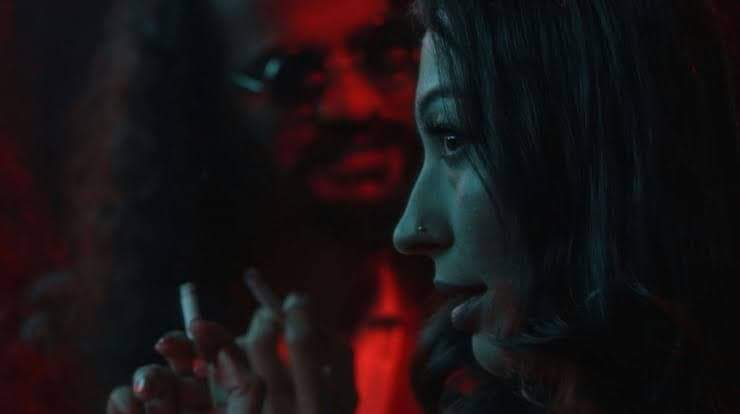
And I'm convinced that this film makes audiences know about 70's music in Pakistan. Especially, the song on its end credit is so exciting that it represents the protagonist's unique, rebellious personality. Please explain this song to Japanese readers? Old song or new song which your crew made for the film? And I want to know about 70's music in Pakistan. What kind of music is popular? What are the most famous songs, for example?
Because the film is the life of a Rockstar- music was always going to play a huge role in the story. The energetic, free-willed music coming out of Pakistan in the 70’s also helped set the tone of 1978.
I remember when I first heard the Pakistani EP ‘Life is Dance’ which features many of the biggest players from the ’70s, including Nahid Akhtar, Noor Jehan, M. Ashraf and Tafo. The entire album was scorching hot, and had rebellious energy that I wanted to capture in our film. The music opened my eyes to the spirit of the 70’s – in a way that only art can do.
They were also some incredible Goan-Christian bands that inspired the music of the film. These included the Black Jacks, Talisman, Keynotes, InCrowd and the Benjamin Sisters.
We also needed an original song for our protagonist to sing in the nightclub, as it is the pivotal moment where we see what Lenny’s life was like at his most glorious moments.
I remember sitting at Cliffy’s when he suggested that we use a song that he recorded in the mid-’80s with his then group, Visions Band. The song was called ‘Zindagi ka Safar’ which translates to ‘The Road of Life.’ It was written in Urdu. However, as most of the songs in the ’70s were performed in English, we had to re-write the lyrics in English and record it.
With the help of Cliffy and songwriter, Mehreen Rizvi, we wrote out the new lyrics and recorded it at Gangwar Studios. Much of this was also thanks to Cliffy’s new bandmates – the In-Time band, which features incredible Goan-Christian musicians, Glenn D’Cruz (Drums), Rodney Rodrigues (lead guitar), Gerald Fernandes (Bass guitar), Hilary Rodrigues (Saxophone). Cliffy was on keyboard and lead vocals. We even got Uncle Norman to come in and do backing vocals! It was an exhausting but exhilarating experience.
I also worked with Pakistani composer, Salman Ahmed, and Korean composer, Jong Ho Choi, to create a soundtrack that stemmed from these inspirations, and I am so proud of their work in the film.
How is the current situation of the Pakistani cinema? From outside, there is rarely a chance to touch its films. But from inside, how do you see the current situation?
The Pakistan Movie Industry is very much in infancy. While we have a thriving ‘television drama’ industry – these are similar to daytime soap operas in the West – here is little in the way of films. We have one or two directors who are attempting to produce content for the world stage. We have a few cinemas, and no state support or infrastructure. Pakistan has no co-production treaties in place, so it is also a challenge to lure foreign investment in film. We also don’t have any dedicated film schools, so there is also a lack of technical facilities available. It is a challenge, but there are a handful of directors who are persevering despite that. Saim Sadiq, Sabiha Sumar, Sarmad Khoosat, Nabeel Qureshi and Asim Abbasi are the names that come to mind when I think of innovative content.
It is both difficult and exciting to make films under these conditions. Most of our films that travel are the first ones to do so. When “Zindagi Tamasha” won at Busan last year- it was the first Pakistani film to do so. Earlier this year, I had the honor of directing the first Pakistani film to play in competition at Clermont-Ferrand International Film Festival with my short “Stray Dogs Come Out at Night”.
It is exciting to be a part of something burgeoning – despite the challenges.
When cinephiles want to know Pakistani cinema history, what Pakistani films should they see? And why?
They must see Jago Hua Savera (1959) by A.J. Kardar – possibly Pakistan’s first arthouse film ever. It is a beautiful film about an impoverished family living in a fishing village. It speaks volumes about the economic and political challenges of the era- but continues its relevance today through contemporary capitalism. The film won the Golden Medal at the 1st Moscow IFF, and was part of Cannes Classics in 2016.
Then I would recommend They Are Killing the Horse (1978) by Mushtaq Gazdar. This short film is a fascinating portrait of one woman’s descent into madness, surrounded by faith healers and unshakable patriarchy. It was the first Pakistani film to play at Tampere Film Festival, where it won the Grand Prix.
Finally, I would say Khamosh Paani (Silent Waters) by Sabiha Sumar. The film is a sublime.
If you choose one favorite Pakistani film, what film do you choose? And I want to know why. Is there a personal memory?
Unfortunately, there is not a great depth of Pakistani cinema to choose from. The last 40 years of filmmaking in this country have ranged from the regional cinema that is something like B cinema internationally, and many melodramatic telefilms. For me, the standout film of the last 30 years is Khamosh Paani – in terms of storytelling, direction and production. It is what inspired me to pursue a career in the Pakistani cinema.
Because of this situation, I have had to widen my net for influences to South Asian cinema- and where there is richness and depth. I love the works of Bangladeshi auteur, Satyajit Ray. While he is popularly known for his Apu Trilogy, it is his films The Big City, The Music Room and Days and Nights in The Forest that have had a lasting impact on me. At one point, all the nations from South Asia (Pakistan, India, Bangladesh) were one- and so, culturally we share similar values. This can be seen in our films.
I think it is worth noting- that the first ‘art-house’ Pakistani cinema film was shot in modern-day Bangladesh.
What I love about cinema is that it has the potential to bring people together, over and above national borders and identities.
Do you have a plan to make a new short or feature? If so, please tell our readers about it.
I am currently in pre-production on a new short film. Once more, the film focuses on the relationship between two brothers- but this time their damage is internal / self-constructed. I also am in early stage of pre-production on my first feature- which I am hoping to complete by the Fall of 2022. It is a long and winding road ahead, but I recognize my immense privilege in being a filmmaker during these uncertain times.
Written by: Tettyo Saito



